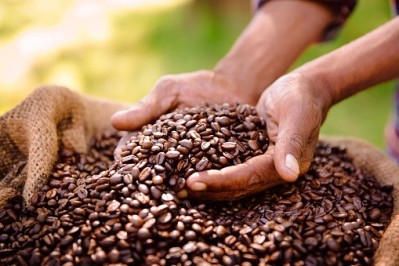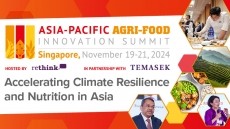Food fingerprinting future: ProfilePrint targets global food standards provider role after industry heavyweight support

When we spoke with ProfilePrint back in 2018, the firm had only just started out on its journey and was then focused solely on tea and providing digital fingerprints for these, utilising molecular signatures to provide consumers and businesses with the ability to know and understand the characteristics of these products without needing to physically touch, taste or smell them.
Four years on, the firm has grown leaps and bounds, expanding its technology to not only derive digital fingerprints for tea but also multiple other food and beverage commodities such as cocoa and coffee, in addition to also having secured funding from major industry names Cargill, Louis Dreyfus, Olam, SinarMas and Sucafina.
"Based on the ProfilePrint model, basically any commodity that has molecular differences is able to have a digital fingerprint developed for it," ProfilePrint Founder and CEO Alan Lai told FoodNavigator-Asia.
“The main components needed here would be to establish a base set of data from core sources of a particular commodity – say for cocoa we’d need to get data from 1,000 cocoa farms in Indonesia or Brazil, then use this to establish a ubiquitous fingerprint [base source] based on their molecular signatures.
“There are protocols by which these fingerprints can be assessed, and for this we don’t specify a fixed set of criteria for assessment but rather enable the individual food firms to train their own fingerprint models based on AI technology, to ensure the commodities they are getting are in line with particular standards they are looking for.
“So for instance if this is a coffee firm looking to make purchases according to coffee bean taste or aroma or freshness, they can train the AI model [customised for them] to focus on those parameters that they are looking for.
“The idea of being the global food standards here comes at the commodity source point, where the fingerprints are established – but based on each company’s ability to train their AI model and give it more data points and information, they can achieve different outcomes and improvements as so desired based on these standards.”
With the firm having recently acquired Cargill as a new major stakeholder, and the four other major stakeholders earlier this year, Lai believes that this has opened up new means for ProfilePrint to expand even further than it already has.
“The first thing we are looking at is the continuous improvement of our hardware and software, and we will also be bringing more of the right talent onboard with this added support,” he said.
“In terms of further global expansion, at the moment actually some 90% of our revenue is already from international markets, and moving forward we are hoping to expand physical client support as well as enter more commodities.
“So for new market expansion we will follow the verticals, i.e. if we look to do more in terms of rice we will be looking at big rice-producing countries like Thailand, Vietnam and Indonesia. But essentially we are looking at the whole supply chain including big food manufacturers in the more developed countries as well as the big upstream ingredient producing countries, so the focus is less on geographical markets but on the best commodities we can focus our efforts on.”
From tea to grains
ProfilePrint believes that its technology has great as-yet uncovered potential for usage in the grains and oilseeds sector, particularly in terms of guaranteeing quality and provenance.
“In rice for example, consumption is on the rise and there is also an increase in demand for premiumisation whether it be certain types of grains, where the rice is grown, particular tastes and textures and so on,” said Lai.
“So in places like Thailand, ProfilePrint technology can be used to help with rice gradation, particularly when it comes to purity (i.e. ensuring that a pack of rice contains a particular type of rice and is not mixed with inferior variants) as the molecular signatures will change according to this purity; as well as freshness and quality (i.e. how old the rice is) and the demand for this depends on the variant, where basmathi for example has higher value the longer it is stored whereas the opposite is true for Hom Mali rice.
“In addition, we also hope to use this technology in other different ways including identifying suitable sources for upcycling, which can be done with rice that has been incorrectly processed for a particular purpose – we are looking at grading these ingredients for upcycling and so broaden the use of our tech, while looking for ways to boost sustainability at the same time.”


















